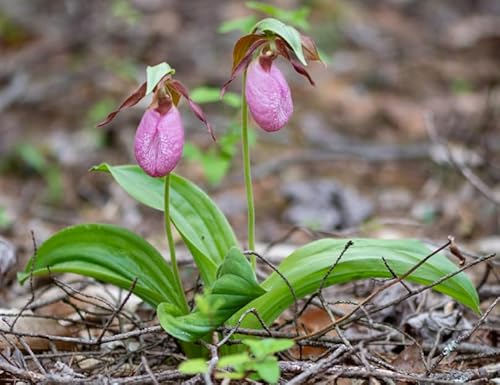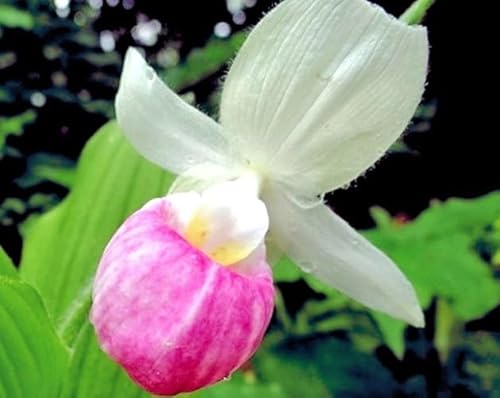The picture shows 1200 plants of bellatulum harvested from the wild in Thailand.

Out of that, the collector/nursery owner says he can successfully establish 80% if them. I am curious to know why 'common' species like bellatulum are still being harvested from the wild.. It is not a new discovery, having being entrenched in cultivation for a very long time, and ironically, line-breeding bellatulum is very advanced in Thailand itself. so, any ideas why this is so?

Very common, in Jatujak there is always a box of a couple thousands bellatulum from the wild around. They come from Burma, never ever from Thailand ( there are still colonies, but the quality is low for the flowers, price more expensive, and they are not as plentiful as in Burma.). There is no advanced line breeding of bellatulum in Thailand at all. F1 at most right now (though some friends are doing further generations).
Could it be a salvage of a timber harvest project (or some other development project)? Could be the forest people just trying to sell anything they can scrounge as the forest supplies less and less of their needs.
As you noted line bred belatulum are readily obtainable in Thailand, and they gotta be pretty cheap by now too.
Plus are there even 1200 species collectors in Thailand that don't already have a have dozen bellatulum?
Pretty amazing. There can't be any $ incentive to send this very commonly cultivated species out of the country.
No, 1000 plants is the minimum order from the collector. Below, impossible to get it. The price is 10THB/plant. You can bargain cheaper for bigger quantities. To get good ones, you have to buy at least 3-5 batches of a thousand each, except if you are lucky. One batch comes from one area, and you have quite a few colonies that are really ugly (4 cm flowers, few spots, narrow petals, pieces of crap...). You have quite a few colonies too with FCC quality ones, and most of the colonies are half half. But the quality in a colony is constant.
Line bred bellatulum are not very common in Thailand (they are really rare in fact, thinking of it... Most of the awarded plants are wild established plants so far, except the album, which is warm tolerant, and one or two strains), bellatulum in Thailand for many people does not survive very long, unlike leucochilum and niveum. If you look carefully, you see many line breeding of niveum, leucos, ang thong, concolor, but exceedingly few of bellatulum. It grows cooler first, and second the plants have a disease in the rhizome that wipes most of them out within a couple of years.
For one thing, bellatulum is a long established species. Collected plants can always be passed on as propagated plants. Why do it? Money...any money. It may not be much, but its still some.
A part will surely be exported ( I think most of the batch will die anyway...), the remaining is popular in bloom on the local market. Most of the bellatulum in bloom sold in Jatujak are wild plants established, not seedlings.
maybe to hope to salvage from an area that would otherwise be clear cut? (wishful thinking).. maybe in hopes of finding a new or aberrant color form or variety?
Nope, they just come from Burma, where they grow by the hundreds of thousands. Definitely, they think of getting albinos, ultra red ones ( there are less than 10 plants all over thailand of the ultra red strain, most likely only 2-3), semialba, pinkish, huge flowers... and do not forget, they cannot line breed those easily if at all... so if you are in Thailand and want a nice one, that's the only way.
Anyway, most are going to die very soon when I look at the photo. The crown is bleached, which means the plants have been stored for few days, and the insects already worked out a bit the crowns. If they are not properly treated, the survival will be very, very low if any.
For the profit, they buy 10THB, usually established with nursery leaves they ll sell anywhere between 70 and 150THB per growth. If they did not have any losses, they would make a huge profit.

 Out of that, the collector/nursery owner says he can successfully establish 80% if them. I am curious to know why 'common' species like bellatulum are still being harvested from the wild.. It is not a new discovery, having being entrenched in cultivation for a very long time, and ironically, line-breeding bellatulum is very advanced in Thailand itself (so I think...). So, any ideas why this is so?
Out of that, the collector/nursery owner says he can successfully establish 80% if them. I am curious to know why 'common' species like bellatulum are still being harvested from the wild.. It is not a new discovery, having being entrenched in cultivation for a very long time, and ironically, line-breeding bellatulum is very advanced in Thailand itself (so I think...). So, any ideas why this is so? 























